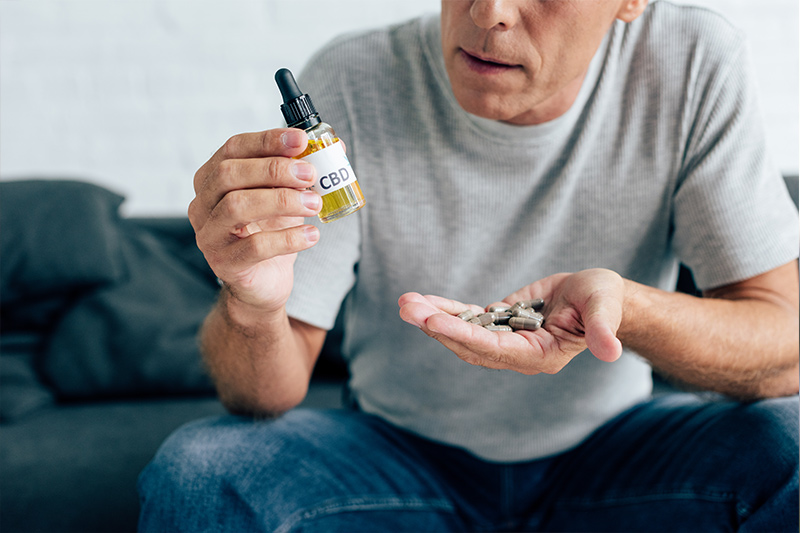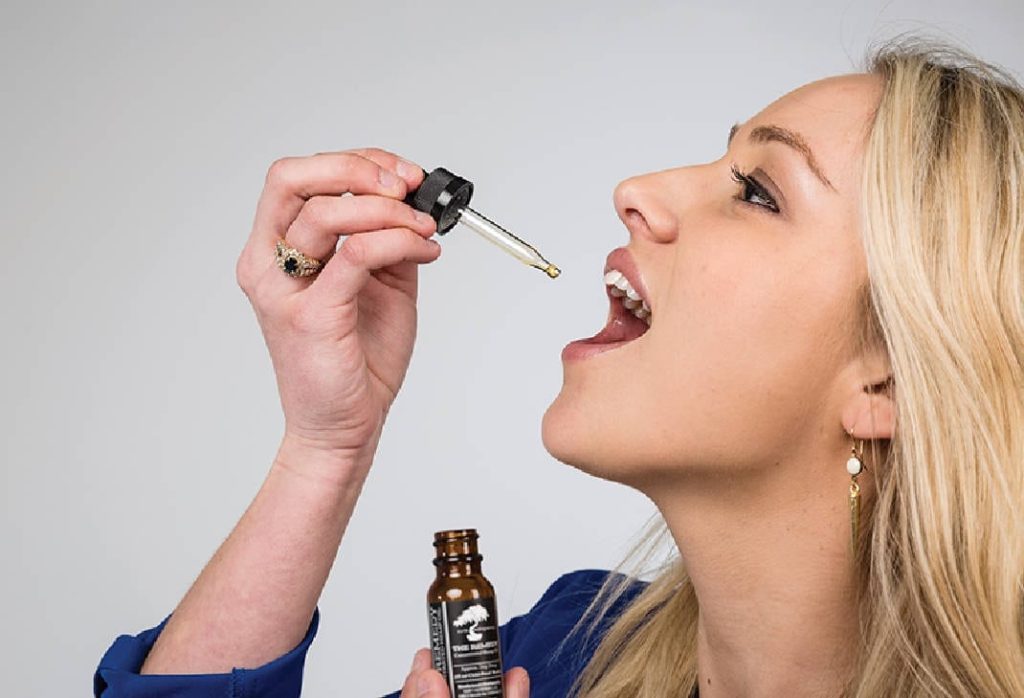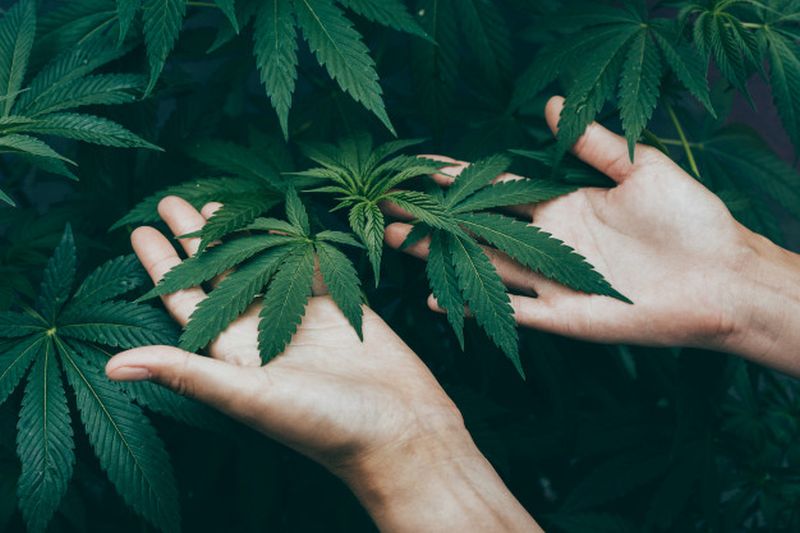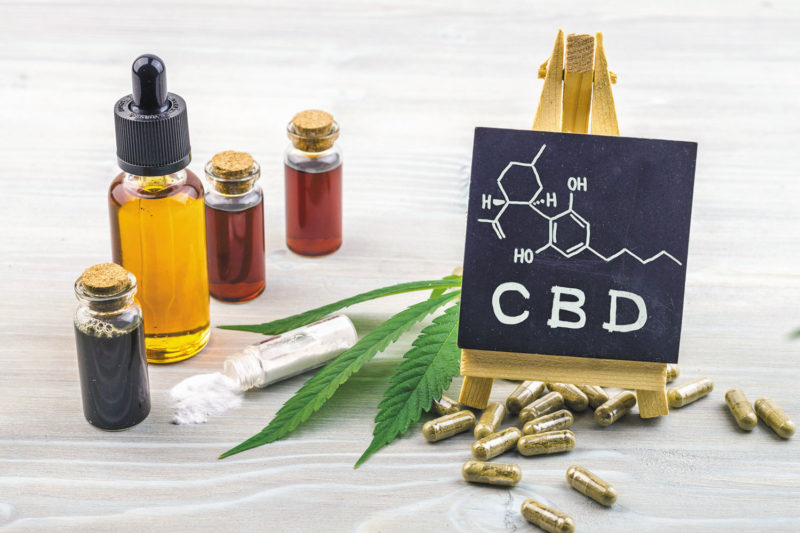CBD stands for cannabidiol, and it is the new buzzy wellness product of recent times. This chemical compound comes from the Cannabis sativa plant, which has two primary species: marijuana and hemp. Both of them have CBD in it, but hemp has a much higher percentage of CBD.
Marijuana has a higher percentage of THC (tetrahydrocannabinol) which is responsible for the psychoactive effects of marijuana. CBD is the non-psychoactive portion of this plant, and it is supposed to induce relaxation and calmness along with pain relief for various body parts. It is also seen as a remedy for depression.
The increasing shift in the consumer’s interest in CBD has given rise to changes in the economic drivers of hemp agriculture. It is assumed that the current hype around this supposedly magic potion isn’t going to fade but would rather see an upward trend going forward.

Uses of CBD
CBD has a lot of uses (as well as side effects) which makes it hot in the current market scene. From relieving pain to alleviating anxiety and depression, a lot of people, especially people in their late teens and early 20s, have turned to the use of CBD Oil. There are testimonies that it helps in Cancer, Acne and Heart problems. Though a lot of study and scientific work is pending for a strong case in making CBD oil a true contender in problems it promises to deliver in. Apart of this there are are lot of other potential benefits of CBD as follows:
- Antipsychotic effects
- Substance abuse treatment
- Anti-tumor effects
- Diabetes prevention

All of these wide range of benefits makes CBD a hot product in today’s market. CBD has also a lot of side effects which can be prominent to ignorable. These include Diarrhea, Changes in appetite and weight and Fatigue as reported by various users over the globe. The use of CBD is rising as of now in the UK, as people of all ages are trying their hand on this oil made possible by a removal of many restrictions on the use and manufacture of CBD. Read more about CBD and its health benefits.
CBD and regulations around it
Since CBD comes from the same plant from where THC is derived, it is deemed that traces of THC in any CBD product might have opium-like effects. This has made government health regulators of many countries and states ban the sale of CBD products in their regions.
CBD boom in the UK
The UK government’s vagueness and complexity of the law governing CBD oil’s import and consumption have provided a thriving platform for the growth of retail CBD products. The variety of CBD products range from oils for consumption to tinctures, gel capsules, topicals, and sublingual sprays.
In the last two years, the low barrier of entry and lack of regulatory standards in the UK has made the CBD market boom with high street products. Few reasons that can be attributed to this burgeoning CBD market are:
- Ability to isolate CBD from THC as a food ingredient or medicine
- Changes in regulations in certain jurisdictions
- Increased awareness of the health benefits of CBD amongst the general public.

According to cbdsupplyuk.co.uk, the CBD market in the UK is worth 300 million pounds and is expected to grow at a whopping speed and triple in the next five years.
So as per the prediction, by 2025, CBD alone would be worth 1 billion pounds in the UK market (this is equivalent to the entire herbal market in the UK in 2016). You can gauge the rising popularity of CBD in the UK by the humungous increase in its consumer base. From 125,000 users in 2017, it doubled in just one year to 250,000 by 2018.
Many famous high street chains in the UK like Boots, Holland and Barret, Lloyds pharmacy, etc. are laden with CBD products which give easy access to CBD sale and consumption for both the producers and consumers alike. The CBD oils which are incorporated into these high street products are mostly imported from either US or Eastern Europe.
The UK laws around CBD
Pure CBD is not seen as a controlled substance in the United Kingdom and comes under the legal category. Since most CBD products are imported, it is questionable whether all the imports are put through rigorous testing or not to confirm if they have compliant levels of other substances in them.
The legal clarity is not there for such imports, and many retailers are trading as per a folk interpretation of domestic law that governs controlled substances (which is incorrect). This phenomenon of misreading law regarding CBD is quite common in the UK, which has become a widespread problem and can mislead consumers.
Consumers profile in the UK

It has been revealed by robust public attitudes data that CBD usage has gone mainstream in the United Kingdom. There were two surveys conducted by Dynata and YouGov in March and May months of 2019. They found out that about 8 to 11% of adults in the UK (approximately 4 to 6 million people) have used CBD at some time. There is an indication of familiarity and new use of CBD amongst all age groups and social strata. Some of the driving factors for the purchase of a CBD product were:
- Clear labelling and instructions
- Quality and purity over legality or origin
- Advice on use and consumption tips
- Preference for British CBD products
The price, brand, or organic status of the oil did not show much buying power. You can see all about this if you click here.
It should be noted and emphasized that all cannabinoids that are used for either human or animal consumption are subject to a regulatory regime. They might have varying levels of restrictions based on an individual country or state laws. As of now, the CBD market in the UK is not regulated by strict measures which pose challenges on the quality of the product.












